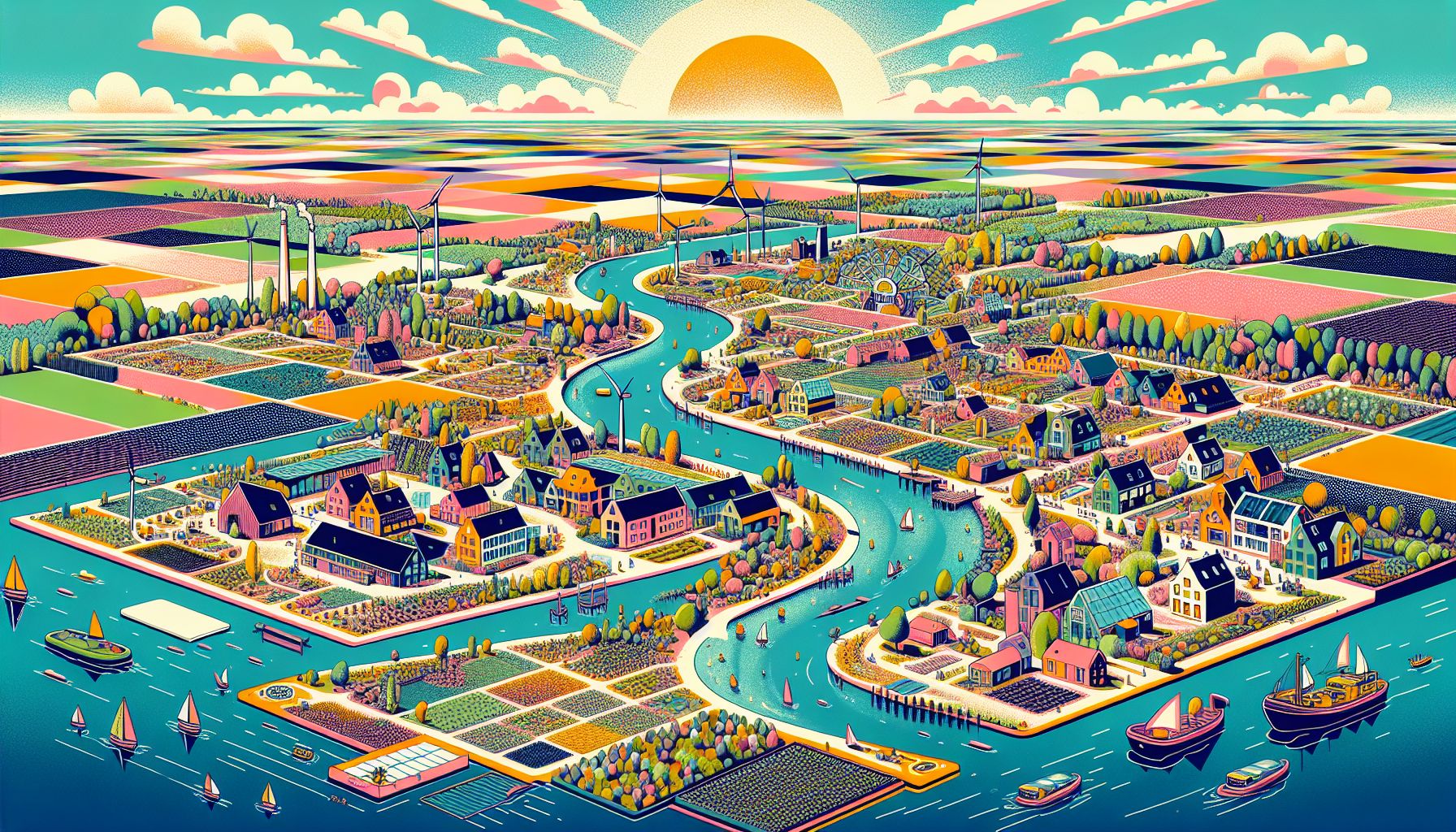North Holland Municipalities Secure Funding for Climate Resilience Projects

North Holland, Monday, 9 September 2024.
Twelve municipalities in North Holland have received subsidies to enhance their climate resilience. The Klimaat Actief Noorderkwartier initiative aims to fund projects that improve sustainability and help urban and rural areas better withstand climate change effects.
Subsidy Allocation and Symbolic Contributions
The subsidies, distributed under the Klimaat Actief Noorderkwartier (KAN) initiative, include a combination of financial support and symbolic contributions. Each municipality can receive up to 30% of their project costs covered, with a total of 1 million euros allocated across the twelve municipalities[1]. The Hoogheemraadschap Hollands Noorderkwartier (HHNK) contributed trees and sandbags as symbols of the initiative’s goals. According to Hoogheemraad Klazien Hartog, ‘The tree symbolizes the de-paving and greening of your municipalities, while the sandbag is something that we hope will not be needed in the future due to these planned projects[1].’
Detailed Distribution of Funds
Each of the twelve municipalities received specific amounts to fund their climate resilience projects. The funds were distributed as follows: Zaanstad (€100,000), Alkmaar (€100,000), Purmerend (€100,000), Heiloo (€100,000), Heemskerk (€100,000), Beverwijk (€20,596.54), Edam Volendam (€92,340), Medemblik (€100,000), Schagen (€54,943.06), Hoorn (€60,819.27), Den Helder (€100,000), and Hollands Kroon (€71,301.13)[1]. These projects are expected to serve as model initiatives for other regions facing similar climate challenges.
Highlighted Projects and Objectives
The projects selected under the KAN initiative address urgent climate resilience needs and aim to serve as examples for future initiatives. For instance, Heemskerk received €100,000 for ‘Blauwgroene maatregelen Holle Beeck,’ focusing on blue-green infrastructure to manage water and enhance biodiversity[1]. Beverwijk’s €20,596.54 will fund ‘Speelplek Munnikenweg,’ a project aimed at creating a resilient and sustainable play area[1]. Edam Volendam’s efforts to revitalize its old village center also received significant funding, although the exact amount was not specified[1].
Context and Broader Implications
This initiative aligns with broader global efforts to combat climate change and enhance resilience. The Netherlands, a low-lying country with extensive experience in water management, continues to innovate in climate adaptation techniques[2]. Projects like these not only protect local communities but also contribute to global knowledge on effective climate resilience strategies. The Clinton Global Initiative (CGI) similarly emphasizes climate resilience in its efforts, promoting collaborative solutions to global challenges[3].
Future Prospects
As these projects progress, they are expected to provide valuable insights and frameworks for other municipalities and countries facing similar climate risks. The World Bank’s involvement in climate resilience projects worldwide, such as the transportation project in Sierra Leone, underscores the importance of such initiatives in fostering global resilience to climate change[4]. By sharing knowledge and resources, these initiatives can drive meaningful progress in the fight against climate change.

